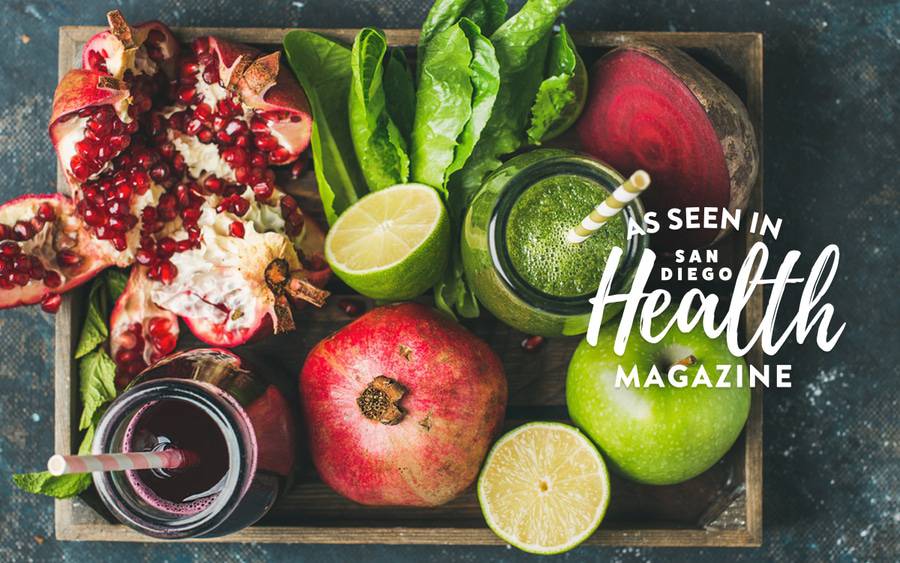Improve Your Diet to Decrease Inflammation and Increase Immunity
Learn how eating the right foods boosts your immune system and reduces your risk of getting sick

Learn how eating the right foods boosts your immune system and reduces your risk of getting sick
Though it’s widely perceived to be a respiratory illness, new research suggests that COVID-19 is an endothelial disease, meaning it primarily infects the inside of the blood vessels. The inflammation the virus causes can affect the lungs, but also virtually every other part of the body.
How that inflammatory storm takes hold could be the reason why some people are asymptomatic while others end up in intensive care, according to Robert Bonakdar, MD, a Scripps Clinic pain management specialist at Scripps Center for Integrative Medicine. But certain lifestyle factors, like how a person eats or sleeps, can make a huge impact on the severity of inflammation they experience and help support their immune health and resiliency.
“By supporting your lifestyle and your blood vessels, you are actually doing some of the strongest and often overlooked work you can do to help prevent COVID-19,” Dr. Bonakdar says.
Foods to Fortify Your Immune System
One of the key links between pain, inflammation, blood vessel issues and a heightened risk of COVID-19 is a high level of the compound trimethylamine N-oxide, a byproduct of food metabolism. A diet high in animal products and saturated fat, and deficient in vitamins, can cause this compound to increase — especially when coupled with other lifestyle factors like sleep deprivation and toxic substances in the environment.
To counter this, Dr. Bonakdar recommends a plant-based or Mediterranean-style diet, getting an adequate amount of vitamins B and D and intermittent fasting, which can be done in several ways. He also recommends increasing your intake of pre- and probiotics, fiber, resveratrol (found in grapes and berries), magnesium (found in whole grains, leafy green vegetables and nuts) and DMB (found in olive oil and balsamic vinegar). Avoiding processed foods, artificial sweeteners, simple carbohydrates and foods that cause a spike in blood sugar can also be helpful.
“Diet is often the most important and immediate factor in improving our health,” Dr. Bonakdar says. “There’s no doubt about it. Whatever supports the gut tends to support reducing inflammation.”
The Link Between Lifestyle Choices and Living Well
Wellness also depends on much more beyond what’s in our pantry. Sleep, exercise and stress levels influence gut health — and subsequently, inflammation. Try meditating, journaling, taking a quiet walk or doing yoga; tranquility promotes a healthier microbiome.
“There are people out there already living this life, eating organic, exercising, de-stressing, and the world around them is not getting to them — that’s not most folks. Most folks need some support,” Dr. Bonakdar says. “At the end of the day it’s important to look at the factors that help reduce inflammation and figure out what your weak link is.”
This content appeared in San Diego Health, a publication in partnership between Scripps and San Diego Magazine that celebrates the healthy spirit of San Diego.